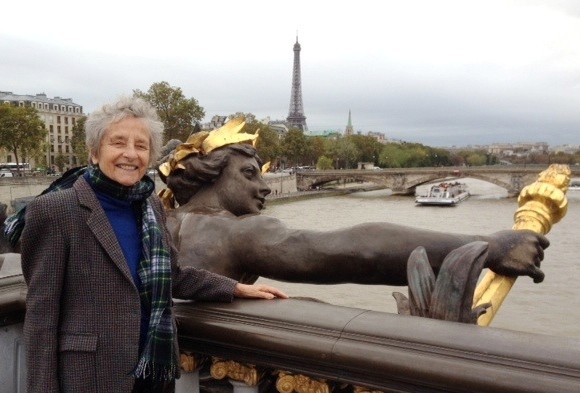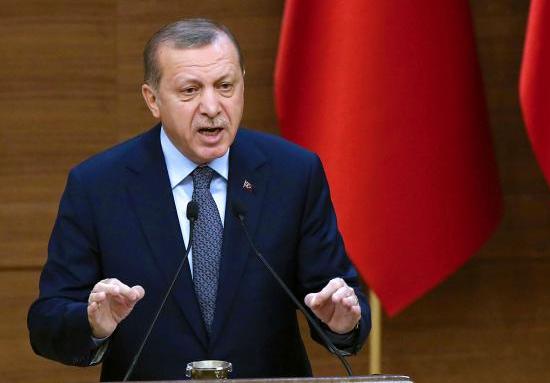
The good news about the victory of Recep Tayyip Erdogan in the April 16 referedum, increasing his constitutional powers to govern, is that his accession to the European Union (EU) has become more unlikely. If he wins another referendum on whether to restore the death penalty, that will be “crossing the red line,” French president François Holland said and it will remove permanently his demand for membership from the negotiating table.
The electoral campaign for the referendum took place in a country traumatized by several bomb attacks. It left little room for the opposition to express its opinions. Acts of intimidation were observed in many voting booths.
In the Netherlands the campaign to gather votes of Turkish expatriates, was particularly unwelcome at a time when the country was having its own elections. Unhappy with the decision of the Dutch authorities not to allow the Turkish diplomats off the plane, the Turkish government called The Hague the “Nazi capital of Europe” and their action, “barbarian.”
It pretended to be shocked by Angela Merkel’s violation of freedom of expression because political rallies by the Turks were cancelled in Germany. The Turkish expats in Europe voted overwhelmingly in favor of the referendum.
On April 13, violent riots took place at a soccer match in Lyon for the Europa League quarter final. Thirty five hundred Turkish supporters of the Besiktas club had bought tickets. But it turned out that 20,000 more, coming from other European countries, had somehow got into the stadium without disclosing their identity.
Recep Tayyip Erdogan won the referendum with a 51.3 percent majority. In the 18 articles of the new constitution, the principle of separation of powers – executive, judiciary and legislative – has disappeared. The president governs by executive orders whenever he wants. There is no longer a prime minister. The president designates ministers and high officials, chooses most of the judges. Parliament will be dissolved and all the new deputies will belong to AKP, the islamo-conservator party of “justice and development.” The president could potentially be in power until 2019.

“Erdogan lost the support of the middle classes of the three main cities – Istanbul, Ankara and Izmir. A sort of a slap in the face for a man who grew up in Istanbul, was its mayor and considers it as his stronghold, “commented Bernard Guetta, a journalist specializing in geopolitics. The European Commission urged Turkey to seek the “broadest possible consensus.”
Anyone who has traveled in Turkey knows that it is made of two different worlds. The president finds his supporters in the first group: firstly, poor farmers living in remote areas of the Anatolian plateau without much in common with the population on the coastal regions who have always had contacts with the West, through trade in the Aegean Sea or the Mediterranean. And secondly, the working class living in the outskirts of the cities. Their shabby houses are the first ones to collapse during recurrent earthquakes. The polluted air in industrial areas can reach unbearable levels.
At the other end of the spectrum one finds Roberts College, the oldest American School abroad still in its original location. It was founded in 1863. Among its alumni are many of the international elites who have shaped this region of the world .
In the 1950s, Turkey was one of the countries benefiting from the Marshall Plan. In 1952 it became a valued member of NATO thanks to its strategic geographic location. This was an invaluable role to play. But even the relationship of Turkey with NATO is tense to-day.
Dorothee Schmid, head of the Contemporary Turkey program at the Institut Français pour la Recherche Internationale (IFRI), comments: “Turkey advances in the fog. It is not compatible with international organizations and its statute at NATO is under question.”
Erdogan considers himself the heir of the sultans of the Ottoman Empire, which spread as a crescent from central Europe, the Middle East to the Mediterranean shores of North Africa from 1299 to 1922.
The Turkish president may have also be looking further back in history to the Hittite empire. In the second milennium BC it was one of the two great powers in the Middle East, competing with Egypt until the decisive battle of Kadesh in 1274 BC against Ramses II. The cyclopean walls and massive gate flanked by two sitting lions still standing to-day in Hattusas, or modern village of Bogäzköy, give an idea of the mighty Hittite empire.
The Turkish president seems to be driven by his thirst for power: every two years or so there are either general elections or referendums. The pull toward autocracy provokes an escalade of tension between the ruler and the people. During the 2011 revolution, the protest on Tahir Square lasted for 18 days and was followed by a tough repression. Since the putsch attempt of July 2016, 1,500 military have been put on trial and tens of thousands arrested or lost their jobs.
Megalomania is another trait of the Turkish president. He lives in a palace 30 times the size of the White House; he is planning to build the longest bridge in the world over the Dardanelles and a mosque so big that it will be seen from any point in Istanbul.
The priority for Erdogan today is to prevent the unification of the Kurds living both in Turkey and Syria. The ongoing conflict has caused heavy losses in the two camps and much hatred. The violence has had an impact on the economy. Tourism has plummeted down by 30 percent since last year. “Turkey feels threatened,” says Ahmet Insel, Turkish economist and specialist on that country.
The agreement between Turkey and the EU *regarding the flux of refugees across the Aegean Sea seems to be working out: in 2015, 10,000 migrants crossed the sea as compared to only 43 to-day. Insel says, “It is in no one’s interest to put an end to this agreement.” The 3.5 million refugees now living in Turkey seem to be adjusting after going through difficult times. The Turkish government is even thinking of offering them citizenship.
Marc Pierini, former French ambassador to Turkey comments, “Turkey remains a major actor in the area.” Nevertheless it is frightening to see the leverage power Erdogan holds over the EU and by way of an almost tangible demonstration of that power, the question discussed by specialists on the France-Culture radio channel on April 8, 2017, was, “How the exacerbated nationalism of Erdogan will impact the geopolitical imbroglio?”
* see “Letter from Paris,” March 19, 2016
Editor’s Note: This is the opinion of Nicole Prévost Logan.

About the author: Nicole Prévost Logan divides her time between Essex and Paris, spending summers in the former and winters in the latter. She writes a regular column for us from her Paris home where her topics will include politics, economy, social unrest — mostly in France — but also in other European countries. She also covers a variety of art exhibits and the performing arts in Europe. Logan is the author of ‘Forever on the Road: A Franco-American Family’s Thirty Years in the Foreign Service,’ an autobiography of her life as the wife of an overseas diplomat, who lived in 10 foreign countries on three continents. Her experiences during her foreign service life included being in Lebanon when civil war erupted, excavating a medieval city in Moscow and spending a week under house arrest in Guinea.